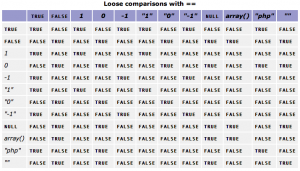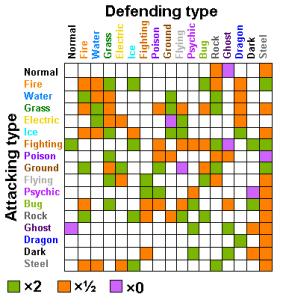Forgot to mention this: Earl Grey won “Best Puzzles” in this year’s XYZZY awards! Rob and I were ecstatic with this result, especially considering the tough competition. IFWiki has a list of all the award winners and nominees, along with links to reviews and downloads. You should, of course, go play Earl Grey if you haven’t already, but there is so much more in that list deserving of your time—Blue Lacuna in particular lives up to every bit of the praise it has received.
You are currently browsing the archive for the blog category.
Tags: interactivefiction
I’ve been in busyland lately, but I thought I’d post a quick update with a link to my appearance on Another Castle, NYC’s premier game design-related podcast. It was a really fun conversation! Charles and I discussed a number of things, including the Interactive Fiction scene, conversation (and language in general) in games, and games as texts. Here’s the audio file, but you really should go subscribe; the archives are amazing, and there’s a great new interview on a regular basis.
Just made a post this morning on Warp Skip regarding Foursquare, XBL achievements and usability. Here’s an excerpt:
Gamerscore and achievements serve a similar purpose. They give you feedback on your play; they give you acknowledgment when you do something noteworthy; they let you know (in broad terms) how much of a game’s content you’ve completed; they let you compare the way you’re playing the game to the way your friends are playing it. Achievements are one of the reasons I prefer playing games on the 360 to playing games on (for example) the Wii: more feedback, more context, makes for a more fun gaming experience.
With a few notable exceptions, no one plays games just for the achievements. They’re not a goal in and of themselves. Likewise, no one “plays” Foursquare just to get the badges. Both badges and achievements are there to let you know that your activities follow a particular pattern. As an added benefit, badges and achievements you haven’t earned yet suggest what other patterns are possible.
I wrote this before I read Sirlin’s response to Jesse Schell’s lecture, in which we are urged “to be vigilant against external rewards” (such as achievements). “How resistant are you to letting others manipulate you with hollow external rewards?” asks Sirlin. Obviously, I am much more sanguine about achievements—I think that people like them because they are useful and fun—and hope to argue for this more effectively in a future post.
Tags: foursquare, games, usability, xbox360
Friend and colleague Matt Parker just posted a video of Lumarca, an open-source volumetric 3D display. Lumarca was Matt’s thesis project at ITP, and appeared most recently at SIGGRAPH Asia:
It’s pretty awesome.
Gizmodo has a good roundup of the technologies behind a number of commercial 3D displays. Take a look and you’ll see that none of this technology really has a chance of getting into the hands of artists, makers and hackers any time soon. Lumarca, however, is ready to go. Here’s the build instructions and source code.
Tags: 3d, consumerelectronics, display, opensource
A few quick links:
- A quick post on Warp Skip concerning Nick Montfort’s recent work in the ludonomastics of Zork.
- Friend and colleague Brendan Berg posts an informative follow-up to my recent comparison of Pokémon and PHP.
- When Leonard Richardson and I recorded our conversation about Scribblenauts a while back, the portions of the conversation that concerned Earl Grey had to be cut for procedural reasons. Now that IFComp 2009 is over, Leonard recently posted the missing segment of the conversation, in which we compare the mechanics of Earl Grey and Scribblenauts.
Tags: interactive, ludonomastics, onomastics, scribblenauts, zork
On top, we have a table of truth values that result when comparing values of different types in PHP. On bottom, we have a chart illustrating the strengths and weaknesses of the seventeen types of Pokémon. Is it crazy to wonder whether one might have influenced the other?
The former is a matrix of arbitrary values intended to produce convenience. The latter is a matrix of arbitrary values intended to produce fun. In my experience, neither achieves its goal. But both follow an arbitrary logic, strangely twisted through history and culture, that might someday make a good subject for a Ph.D. thesis. (Why does a non-empty string equate with integer zero? Why is Psychic strong against Poison?)
Tags: games, php, pokemon, programming
The Glasgow Science Center is currently exhibiting The Joking Computer, a kiosk-based installation running software made by artificial intelligence researchers at the University of Aberdeen. The software uses phonetic information about English words and semantic information from WordNet to generate pun-based riddles. (More information about how it works.)
A few of my favorites:
What kind of tree is nauseated?
A sick-amoreWhat do you call a cross between an emporium and a success?
A department scoreWhat do you get when you cross a choice with a meal?
A pick-nic
More examples here, and an online version is promised soon.
I like to read programs like this—programs that generate text conforming to a specific genre—as a kind of ethnographic criticism. The Joking Computer describes a particular type of joke by observing how jokes of that type are formed and used in our culture, and then formalizing the jokes as a procedure. The procedure itself serves as a statement about how that genre of text works: its structure and its limitations.
The Joking Computer specifically, and text generators in general, also manifest the nature of the data that they’re built upon. Take this joke (please):
What do you call a washing machine with a september?
An autumn-atic washer.
This joke shows the gaps that exist in the program’s data, and the unique way in which the program uses that data. First, the program doesn’t have a way to know that a washing machine isn’t a kind of thing that is likely to be “with” a “September” (or that September isn’t a noun likely to be used with an indefinite article). Second, the relationship between “September” and “autumn” depends on the eccentricity of WordNet, which claims that there is a meronymic relationship between the two concepts. The joke is constructed on the basis of the fact that September is a “part of” autumn—which certainly makes a kind of sense, but isn’t necessarily something that most people would intuitively agree with. The joke, as a consequence of (at least) these two factors, seems stilted and alien.
Then again, stilted or not, I happen to think this joke (“autumn-atic washer”!) is hilarious, and that the humor stems at least in part from the gaps in the data and way the program uses that data. Jokes, after all, are funny when they provide surprising juxtapositions or reconceptualizations of things in the world, and the program delivers those in abundance.
Poems succeed when they make use of similar juxtapositions and reconceptualizations. I think that this is why generative text programs are most effective when they are designed to generate text in these genres (humor and poetry). These programs succeed just because they don’t perfectly model the genre they set out to emulate.
In other genres, like conversation or narrative, surprising juxtapositions are less valued, or even specifically forbidden. I think that generative algorithms in those genres tend to be less successful for this very reason. But that’s a subject for another post.
Tags: generative, humor, language
Three recent projects which I have so far neglected to post about:
- Rob Dubbin and I entered a game into 2009′s Interactive Fiction Competition. The game is called Earl Grey (ifdb page), and you can download it here; here’s a (mostly) positive review from Victor Gijsbers. The game was awarded fifth place in the competition. Rob and I are working on a new version that has a number of fixes and enhancements, so stay tuned.
- I have been working at Socialbomb as a programmer for some time now. The most recent project of interest that I’ve worked on over there is called Tagnic, which is a kind of social microsyntax for Twitter.
- Warp Skip is a new group blog about video games that I’m participating in, along with a couple of knuckleheads from the old ZZT days. My first piece over there is this Brütal Legend review/essay/extended sandwich metaphor.
LATE EDIT: Andy Doro is exhibiting the Networked Byte Organ, which we worked on together, at Taller Boricua.
Tags: interactivefiction, twitter
Recently Leonard Richardson and I recorded a conversation about the popular DS game Scribblenauts. The result is called The Trouble with Scribbles. The conversation ranged from NetHack to Star Trek to Japanese mythology; I think somewhere along the way we managed to have a genuine insight or two. Listen in and tell us what you think.
Tags: audio, games, scribblenauts
| Verbs get set ban unban create expire promote revoke run add remove register cancel edit invite rsvp delete refresh query is/are upload send mark publish Nouns |
Verbs get show update destroy post put exists verify end follow leave report request authorize authenticate Nouns |
I made this list by combing through both services’ API documentation and extracting noun-like words and verb-like words from the names of resources or methods. Facebook count: 24 verbs, 43 nouns. Twitter count: 15 verbs, 24 nouns.
Here’s what I think these numbers mean.
Facebook manages many different kinds of content, and allows you to perform many different kinds of actions on that content, though the actions that you can perform on one kind of content are inconsistent with the actions you can perform on another. Twitter has fewer types of content, and a more consistent set of HTTP-like actions to perform on that content.
The Facebook API tends toward the baroque and insular, while the Twitter API tries its best to be a part of the web. In general, the Twitter API is much more straightforward.
I think this simplicity—this paucity of nouns and verbs—has been an important factor in Twitter’s widespread growth among both users and developers.
Developers can be confident that—even if Twitter’s API changes—they’ll still be doing mostly the same actions (getting, posting, updating) on mostly the same things (statuses, friendships, direct messages). Users know exactly how all the moving parts of Twitter work together, and are therefore better able to understand how a given application might augment that.
On Facebook, the opposite is true. User statuses, notifications, event invitations, feed stories, photos—they all have different interfaces and behave in different ways. Even long-time developers can’t keep track of how everything works together.
Interestingly, Facebook’s platform roadmap says that one of Facebook’s goals is to “focus [...] communication on the stream and Inbox,” which will make communication on Facebook feel much more like Twitter. I think this is a smart move—anything that simplifies the user’s model of how communication on Facebook works is a good idea, both for users and developers.



